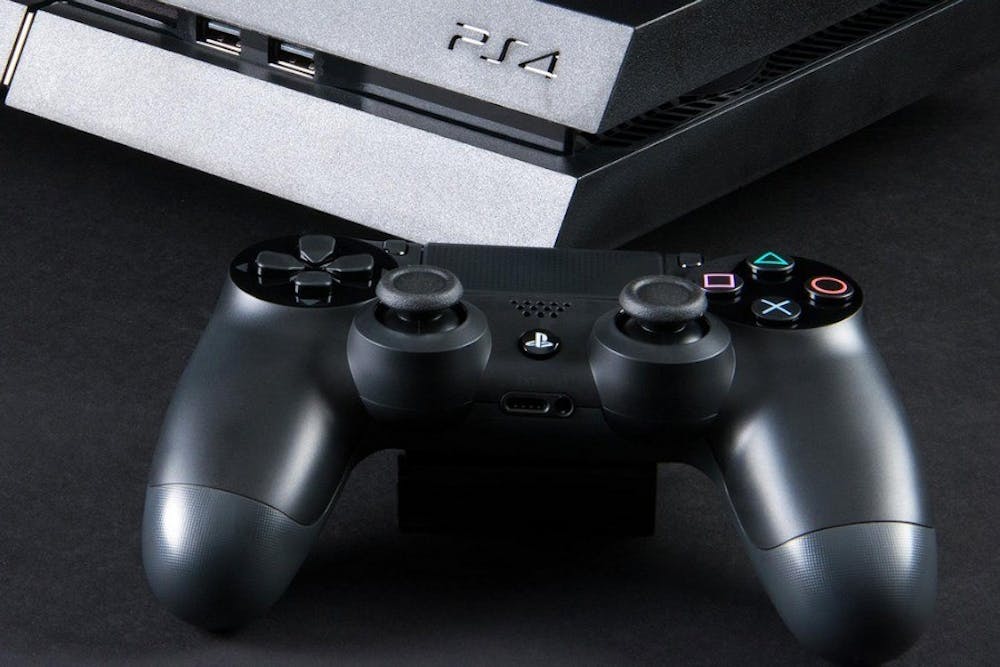There's a moment when playing Destiny, when you look out into the distance. You see the beautiful world around you and just marvel at it. That moment is a microcosm of the game as a whole. That world looks beautiful and you want desperately to explore it, but you can't go beyond the built-in boundaries. In a game that does so much right, Destiny falls slightly short of achieving its potential.
Destiny comes from Bungie, the makers of the immensely popular original Halo trilogy. Destiny has become the best-selling new game in history. Bungie merges the sci-fi, first person shooter (FPS) elements of Halo with some massively multiplayer online (MMO) elements of World of Warcraft. Your character is a nameless Guardian, revived from death after an undetermined period of time in the middle of a post-collapse society in the distant future. You're tasked with fighting off "the Darkness," the enemy of "The Traveler," a foreign being who protects the last city on Earth. It is the Traveler who arrived and pushed Earth into a "Golden Age" that lasted until the Darkness nearly wiped everything out.
If the plot sounds confusing and boring that's because it is. Bungie falls short on the plot and story. One of the major characters in the plot has no name, but is simply known as "the Stranger" and offers vague comments that tease a greater story. Bungie created a companion app that helps fill out the backstory, but Destiny acts as nothing more than a prologue. Your main companion is a tiny robot, a Ghost, voiced by Peter Dinklage (thus called Dinklebot). Bungie created Cortana for Halo, arguably the greatest A.I. companion, and Dinklebot falls well short of Cortana'a benchmark. Bungie forgot the number one rule of A.I. companionship: you don't make the robot robotic. Dinklage's delivery is too robotic and lacks life.
It's not the plot or characters that draw you into the game, because you don't care about them at all. However, the gameplay is what keeps you coming back.
Destiny plays as one of the best FPS in recent memory (with a few fun moments of third-person action thrown in too). The controls are tight and fluid. It plays a lot like Halo, which is a really good thing.
As expected from a Bungie product, the score and visuals are nothing short of spectacular. The game looks and sounds amazing.
The MMO element isn't as perfected. The strike missions, where you team up with two others, are great and the online multiplayer is fun. The multiplayer is a little shallow, but Bungie has said they'll keep it fresh throughout. Destiny relies heavily on a loot system to acquire and upgrade guns and gear. It's both frustrating and rewarding. The loot drops, the good ones at least, are rare and you often feel like you deserve more. But when you get that legendary gun helmet, it is a great feeling. The lack of a true matchmaking system for strikes and raids is sorely missed.
Bungie has promised constant new activities and events to keep the game fresh and to get players to keep coming back. They need those desperately, because the game gets repetitive quickly. The gameplay is great, but replaying the same missions over and over gets boring. On top of that, the missions that are different are structured the same. Fight this wave of enemies, wait for Dinklebot to slowly decode something, take down this huge boss and so on.
On the bright side, the enemies vary greatly. There are four difference races and each have different strengths, weakness, attacks and defenses. They aren't simply clones of each other, which help keep things fresh.
Destiny does a lot of things well, but the lack of a plot and excess repetition prevents it from becoming legend (as its tagline says). But it is ultimately a great experience with the potential to keep users come back for more. Destiny is a victim of its own hype in many ways, but it is a fun experience and that's what you ultimately want out of a video game.

